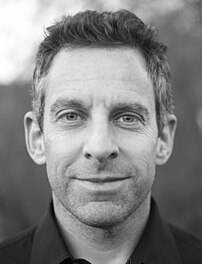
Wilhelmus Simon Petrus Fortuijn, known as Pim Fortuyn, was a Dutch politician, author, civil servant, businessman, sociologist and academic who founded the party Pim Fortuyn List in 2002.

The White Australia policy is a term encapsulating a set of historical policies that aimed to forbid people of non-European ethnic origin, especially Asians and Pacific Islanders, from immigrating to Australia, starting in 1901. Governments progressively dismantled such policies between 1949 and 1973.

The term multiculturalism has a range of meanings within the contexts of sociology, political philosophy, and colloquial use. In sociology and in everyday usage, it is a synonym for "ethnic pluralism", with the two terms often used interchangeably, and for cultural pluralism in which various ethnic groups collaborate and enter into a dialogue with one another without having to sacrifice their particular identities. It can describe a mixed ethnic community area where multiple cultural traditions exist or a single country within which they do. Groups associated with an indigenous, aboriginal or autochthonous ethnic group and settler-descended ethnic groups are often the focus.
Liberalism and progressivism within Islam involve professed Muslims who have created a considerable body of progressive thought about Islamic understanding and practice. Their work is sometimes characterized as "progressive Islam". Some scholars, such as Omid Safi, differentiate between "Progressive Muslims" and "Liberal advocates of Islam".

Bassam Tibi, is a German political scientist and Professor of International Relations. He was born in 1944 in Damascus, Syria to an aristocratic family, and moved to Germany in 1962 where he later became a citizen in 1976. He is known for his analysis of international relations and the introduction of Islam to the study of international conflict and of civilization. Tibi is known for introducing the controversial concept of European Leitkultur as well as the concept of Euroislam to discussions about integration of Muslim immigrants to countries in Europe. He is also the founder of Islamology as a social-scientific study of Islam and conflict in post-bipolar politics. Tibi has done research in Asian and African countries. He publishes in English, German and Arabic.

Eurabia is a political neologism, a portmanteau of Europe and Arabia, used to describe a far-right, anti-Muslim conspiracy theory, involving globalist entities allegedly led by French and Arab powers, to Islamise and Arabise Europe, thereby weakening its existing culture and undermining a previous alignment with the United States and Israel.

Ayaan Hirsi Ali is a Somali-born Dutch-American activist and former politician. She is a critic of Islam and advocate for the rights and self-determination of Muslim women, opposing forced marriage, honor killing, child marriage, and female genital mutilation. She has founded an organisation for the defense of women's rights, the AHA Foundation. Ayaan Hirsi Ali works for the Hoover Institution at Stanford University, the American Enterprise Institute, and was a senior fellow at the Future of Democracy Project at Harvard Kennedy School.

David Goodhart is a British journalist, commentator and author. He is the founder and a former editor of Prospect magazine.

Samuel Benjamin Harris is an American philosopher, neuroscientist, author, and podcast host. His work touches on a range of topics, including rationality, religion, ethics, free will, neuroscience, meditation, psychedelics, philosophy of mind, politics, terrorism, and artificial intelligence. Harris came to prominence for his criticism of religion, and Islam in particular, and is known as one of the "Four Horsemen" of New Atheism, along with Richard Dawkins, Christopher Hitchens, and Daniel Dennett.

Who Are We? The Challenges to America's National Identity (2004) is a treatise by political scientist and historian Samuel P. Huntington (1927–2008). The book attempts to understand the nature of American identity and the challenges it will face in the future.

The sociology of immigration involves the sociological analysis of immigration, particularly with respect to race and ethnicity, social structure, and political policy. Important concepts include assimilation, enculturation, marginalization, multiculturalism, postcolonialism, transnationalism and social cohesion.
Christopher Caldwell is an American journalist, and a former senior editor at The Weekly Standard, as well as a regular contributor to the Financial Times and Slate. He is a senior fellow at the Claremont Institute and contributing editor to the Claremont Review of Books. His writing also frequently appears in The Wall Street Journal, The New York Times, and The Washington Post. He was also a regular contributor to The Atlantic Monthly and the New York Press and the assistant managing editor of The American Spectator.

Douglas Kear Murray is a British author and political commentator. He founded the Centre for Social Cohesion in 2007, which became part of the Henry Jackson Society, where he was associate director from 2011 to 2018. He is also an associate editor of the conservative-leaning British political and cultural magazine The Spectator. Murray has also written columns for publications such as The Wall Street Journal.
Criticism of multiculturalism questions the ideal of the maintenance of distinct ethnic cultures within a country. Multiculturalism is a particular subject of debate in certain European nations that are associated with the idea of a nation state. Critics of multiculturalism may argue against cultural integration of different ethnic and cultural groups to the existing laws and values of the country. Alternatively critics may argue for assimilation of different ethnic and cultural groups to a single national identity.
Multiculturalism in the Netherlands began with major increases in immigration during the 1950s and 1960s. As a consequence, an official national policy of multiculturalism was adopted in the early 1980s. This policy subsequently gave way to more assimilationist policies in the 1990s and post-electoral surveys uniformly showed from 1994 onwards that a majority preferred that immigrants assimilated rather than retained the culture of their country of origin. Even though the general acceptance of immigrants increased, opinion polls from the early 1980s and after showed that many were critical of immigration. Following the murders of Pim Fortuyn and Theo van Gogh the political debate on the role of multiculturalism in the Netherlands reached new heights.

While Europe Slept: How Radical Islam is Destroying the West from Within is a 2006 book by Bruce Bawer. It was Bawer's second book dealing with the issue of religious fundamentalism, following his earlier Stealing Jesus: How Fundamentalism Betrays Christianity, a critique of fundamentalist Christianity published in 1998.
Ed West is a British author, journalist and blogger, who is the deputy editor of UnHerd. He was previously deputy editor of The Catholic Herald and a columnist for The Daily Telegraph and The Spectator. He began his career with the lads mag Nuts Magazine, and has also written for the Evening Standard, The Guardian, The i, The Week, and Spiked.

The One Million Plan was a strategic plan for the immigration and absorption of one million Jews from Europe, the Middle East, and North Africa into Mandatory Palestine, within a timeframe of 18 months, in order to establish a state in that territory. After being voted on by the Jewish Agency for Israel Executive in 1944, it became the official policy of the Zionist leadership. Implementation of a significant part of the One Million Plan took place following the establishment of the State of Israel in 1948.
Simon Cottee is an academic who works as a senior lecturer in criminology at the University of Kent, and is a regular contributor to The Atlantic. He previously worked at Bangor University and the University of the West Indies' Trinidad campus. He is the author of The Apostates: When Muslims Leave Islam, which the publishers claim is "the first major study of apostasy from Islam in the Western secular context". In a review published in New Humanist, Alom Shaha wrote that the book "brings sensitivity and empathy to an intensely polarised debate". Nick Cohen, writing in The Spectator, argues that Cottee "shows how elements in the left and academia are happy to denounce Muslims who exercise their freedom to abandon their religion as 'native informers' who have gone over to the side of western imperialism". Cottee is also editor, with Thomas Cushman, of Christopher Hitchens and His Critics: Terror, Iraq, and the Left. Cottee's published research also includes journal articles on topics including the murder of Theo van Gogh and the motivations of terrorists. He has argued that gang culture offers a way of understanding the appeal of ISIS . Cottee also argues that the group's propaganda videos have a "pornographic quality".

Murder in Amsterdam: The Death of Theo Van Gogh and the Limits of Tolerance is a 2006 book by Ian Buruma. The Guardian describes it as, "part reportage, part essay." It explores the impact of mass immigration from Muslim countries on Dutch culture through the lens of the murder of film director and anti-immigration activist, Theo van Gogh.














